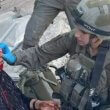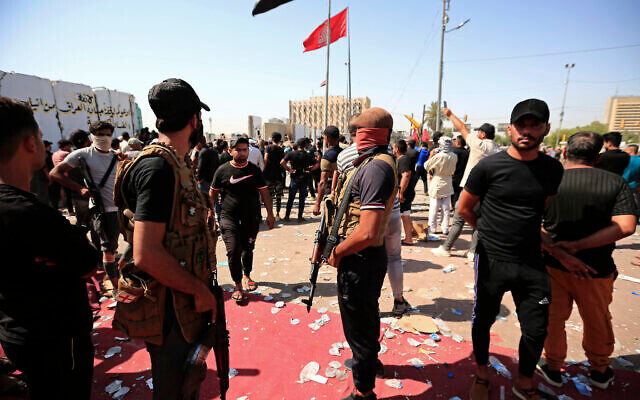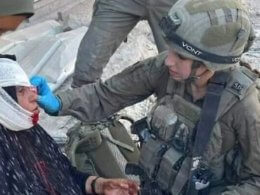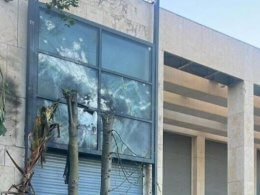1) Political Stability
This week, Shiite cleric Moqtada al-Sadr, one of the most powerful Iraqi political leaders, announced his retirement from political life. Along with this, Sadr controls a militia which he leads in opposition to the U.S. invasion of Iraq. Sadr said in a statement: "I had decided not to interfere in political affairs, but I now announce my final retirement and the closure of all [Sadrist] institutions." Sadr’s political alliance won the most seats in last year’s October elections but failed to move past the political deadlock in their parliament. By Tuesday, Sadr demanded that his supporters leave the Baghdad’s Green Zone. “I apologize to the Iraqi people. I was hoping for a peaceful demonstration, not with mortars and weapons.”
2) Previous Protests
Sadr’s retirement announcement came two days after he called for all parties and figures involved in political life following the 2003 U.S.-led invasion of Iraq to quit. Multiple protests have happened in Iraq this year due to the political deadlock. Several of the MPs in Sadr’s block resigned over the appointment of a new prime minister. Hundreds have been camped outside parliament since storming it in July in protest of the deadlock.
3) Association with Iran
The announcement by Sadr, which was posted on Twitter, appears to have referenced the retirement of another Shiite spiritual leader, Ayatollah Kadhim al-Haeri, who announced his own retirement Sunday. Sadr’s followers overlap with Haeri’s followers. In his announcement, Haeri called on his followers to seek guidance from Iran's Ayatollah Ali Khamenei instead of Shiite religious authorities in Iraq's holy city of Najaf. This likely created a legitimacy crisis for Sadr, who lacks academic standing to be an ayatollah.
4) Protests and Conflicts
Following the announcement of his retirement, Sadr’s supporters stormed the Presidential Palace. These clashes also broke out in the “Green Zone”, Baghdad’s International Zone that was established during the U.S. invasion, which caused at least 30 deaths and hundreds injured. In response to the protests, the Joint Operations Command announced a city-wide curfew. Al Jazeera’s Mahmoud Abdelwahed has said the situation in the Green Zone of the Iraqi capital remains “very tense.” Continuing he said, “There is no sign of de-escalation,at least for the time being. Every now and then, we hear gunshots,... The Green Zone is now a battlefield [for] rival factions.” The clashes between rival factions and security forces in Baghdad have been ongoing since Sadr’s announcement. Intermittent gunfire has been heard in the city through the past two days, and the conflict is unlikely to deescalate soon. In response, Sadr announced he will stage a hunger strike until “the violence and the use of weapons stop.”
5) Regional and U.S. Reaction
The Iranian authorities canceled all flights to Iraq along with closing all land border crossings between Iraq and Iran and advised Iranian citizens to avoid traveling to the country amid the violence. An Iranian foreign ministry spokesperson also said that “the Iranian government believes there is no political impasse that Iraq can’t solve itself.” The Kuwait Embassy urged all its citizens to leave Iraq and also asked those wishing to travel to Iraq to postpone their plans. Similarly, Turkey urged its citizens to avoid travel to Baghdad and called for “inclusive dialogue” to resolve the ongoing crisis. “Turkiye is concerned about the developments in brotherly Iraq. We hope that current political conflicts will be resolved peacefully and through inclusive dialogue, and the peace and well-being of the Iraqi people will be ensured,” the Turkish foreign ministry said in a statement. Monday, the White House said that unrest in Iraq after Sadr quit politics was "disturbing" and called for "dialogue" to ease the country's political problems. John Kirby, the coordinator for strategic communications at the National Security Council, stated, “There’s no evacuation going on at the embassy and no indication that’s going to be required at this time.” The United Nations (UN) Assistance Mission in Iraq urged protesters to leave the Green Zone and vacate government buildings. “Today’s developments are an extremely dangerous escalation,” the UN mission tweeted. “State institutions must operate unimpeded in service of the Iraqi people, under all circumstances and at all times. Respect for constitutional order will now prove vital.”










